Oikonomos, 2018
In Oikomonos (2011-2018) is more evident the exploration of portraiture – anonymous or fictional bodies and identities
move through this globalized world. The artist himself poses for the camera wearing a white shirt and the head covered
by shopping bags from different locations, directing the viewer's gaze towards the wording on the bags and what they
represent. Through a combination documentary precision with poetic imagination, Edson's images invite the viewer to
decelerate from the fast-paced daily routines of busy cities and to slowly engage with and reflect on complex issues such
as the effects of globalization, on consumerism, on themes of displacement and construction of identities in this fast-
changing world.
Protected: OVR
There is no excerpt because this is a protected post.
Protected: Group Exh
There is no excerpt because this is a protected post.
Untitled, Found not taken, Luanda-London-Newport, 2008-14
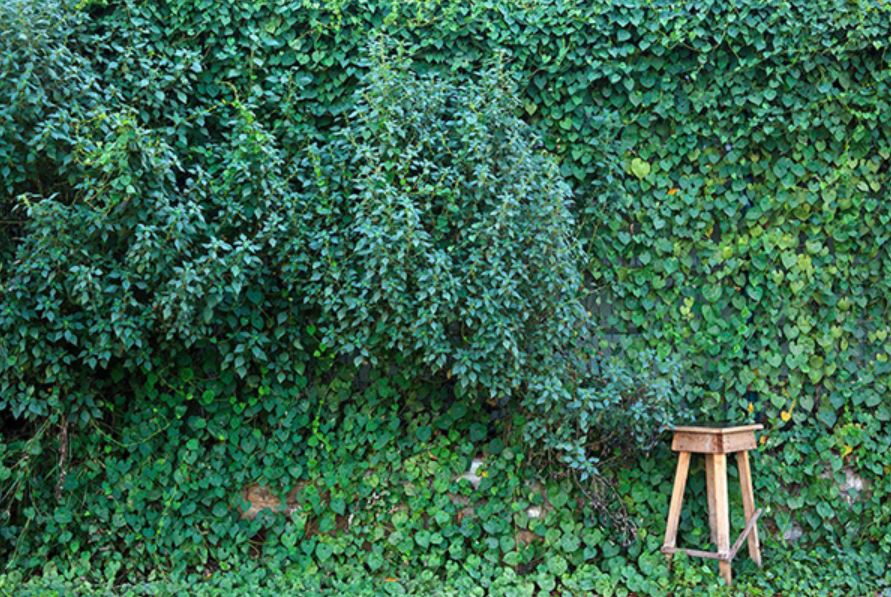
For Found Not Taken, Chagas walked through the streets of Luanda, London and Newport, collecting discarded objects and moving them, at times slightly and in other instances significantly, before photographing them. Taken out of their context and photographed in relation to a carefully chosen background, the mundane items are turned into abstract icons that animate the city. What might seem at first glance a symbol of a society characterized by waste and instant obsolescence is also a reflection on the fact that what is perceived as real is actually a construct. A selection from the series represented Angola at the 55th Venice Biennale, winning the Golden Lion for Best National Participation.
Untitled, Found not taken, Luanda-London-Newport, 2008-14
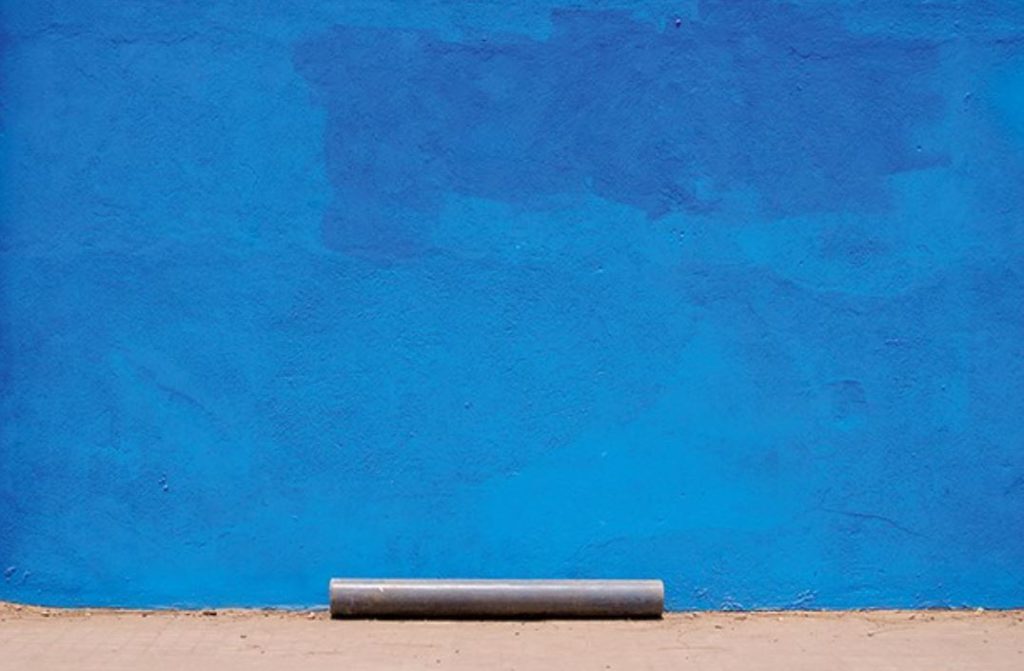
For Found Not Taken, Chagas walked through the streets of Luanda, London and Newport, collecting discarded objects and moving them, at times slightly and in other instances significantly, before photographing them. Taken out of their context and photographed in relation to a carefully chosen background, the mundane items are turned into abstract icons that animate the city. What might seem at first glance a symbol of a society characterized by waste and instant obsolescence is also a reflection on the fact that what is perceived as real is actually a construct. A selection from the series represented Angola at the 55th Venice Biennale, winning the Golden Lion for Best National Participation.
Oikonomos, 2018
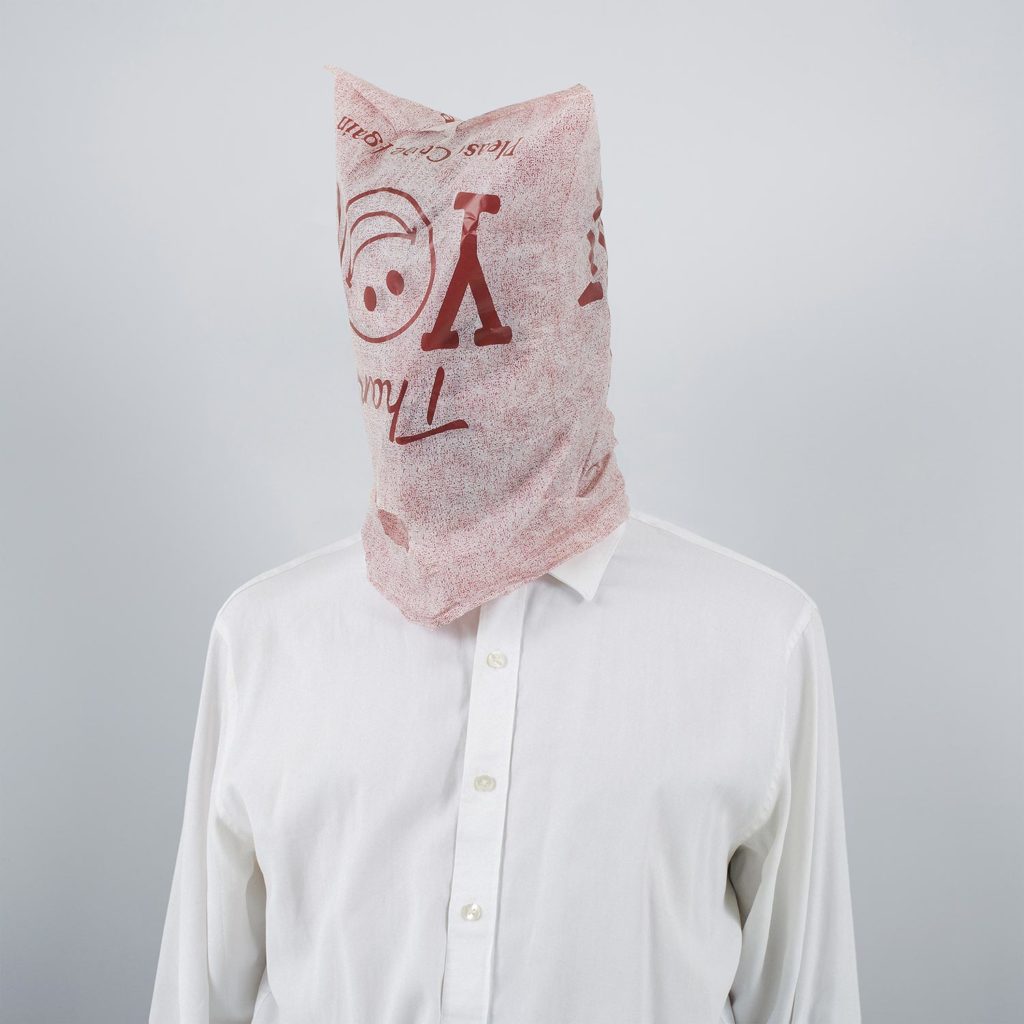
In Oikomonos (2011-2018) is more evident the exploration of portraiture – anonymous or fictional bodies and identities
move through this globalized world. The artist himself poses for the camera wearing a white shirt and the head covered
by shopping bags from different locations, directing the viewer's gaze towards the wording on the bags and what they
represent. Through a combination documentary precision with poetic imagination, Edson's images invite the viewer to
decelerate from the fast-paced daily routines of busy cities and to slowly engage with and reflect on complex issues such
as the effects of globalization, on consumerism, on themes of displacement and construction of identities in this fast-
changing world.
Penélope’s hair, 2001

Hair inquire Share on facebook Share on twitter This work represents the European influence on Angola. Dress, language, and culture have all been affected, as has race – multiracial families are commonplace, as shown here among depictions of the artist’s own friends and family linked by a clothesline, a symbol of the home. Cultural changes […]
Elastic With Ball #6, 2018
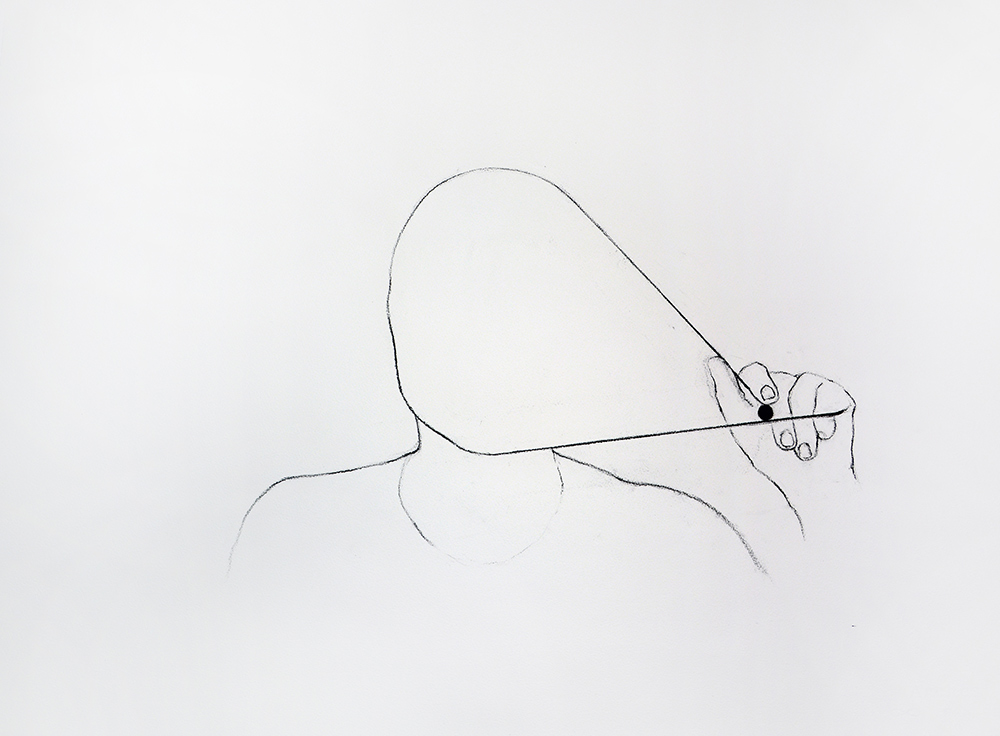
Elastic With Ball #4, 2018
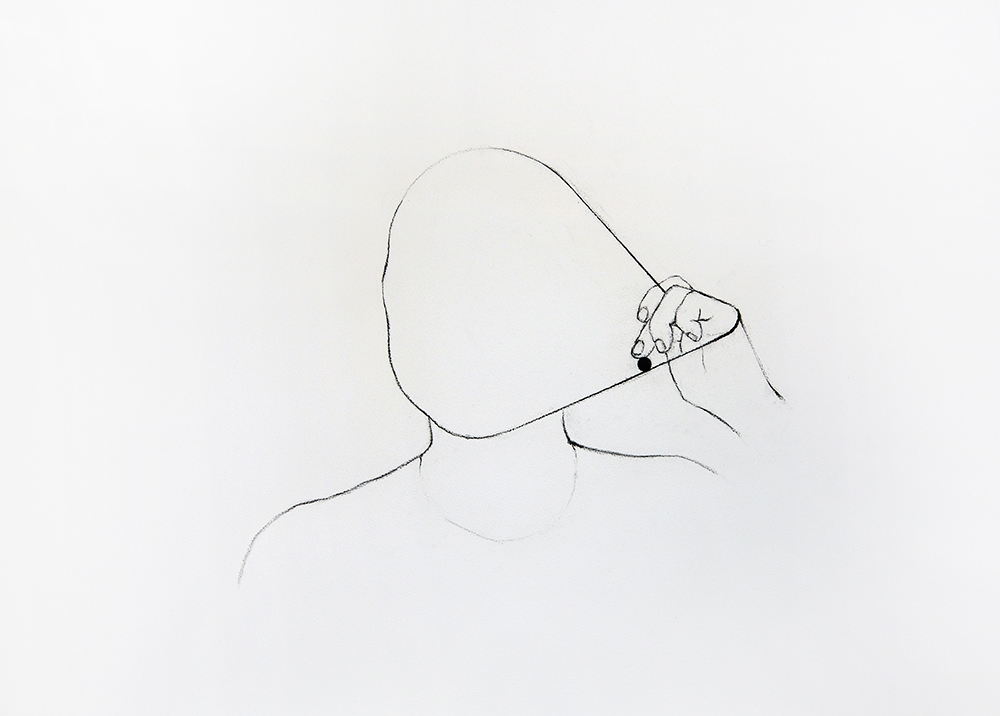
Untitled (from the series Weak Force), 2016
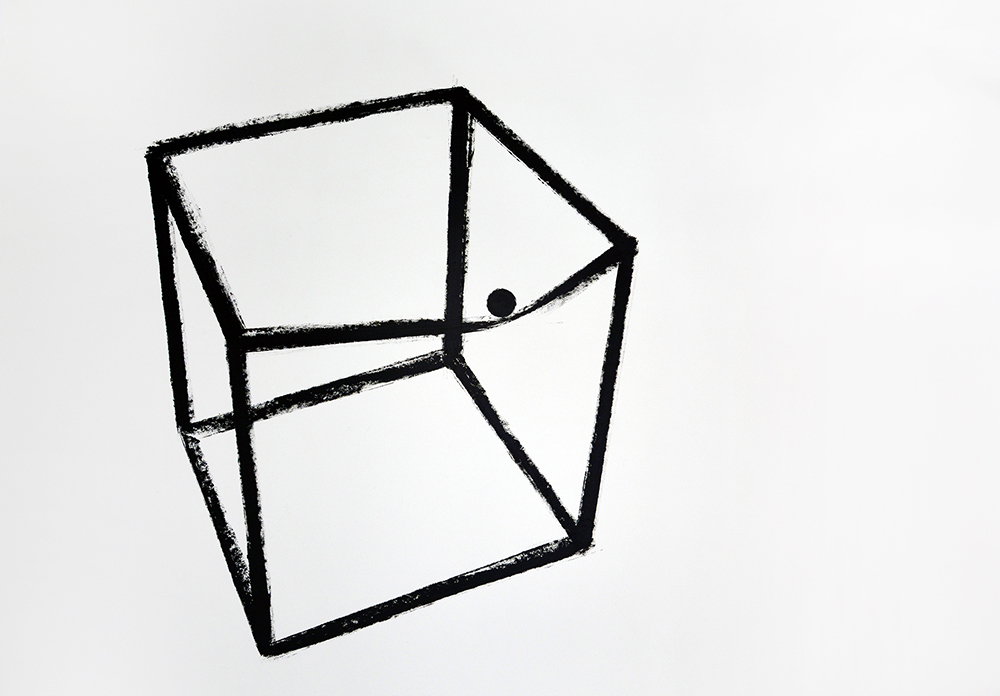
A black dot, frmly applied over cotton paper, is the circular mark of an oil bar that affects the line or surface of the geometric solid drawn. The expression of its force in the transformation of these regular solids is not always exercised vertically, claiming gravity as that weak force that can alter, as an artistic process, any of the objects in different directions and vectors.
